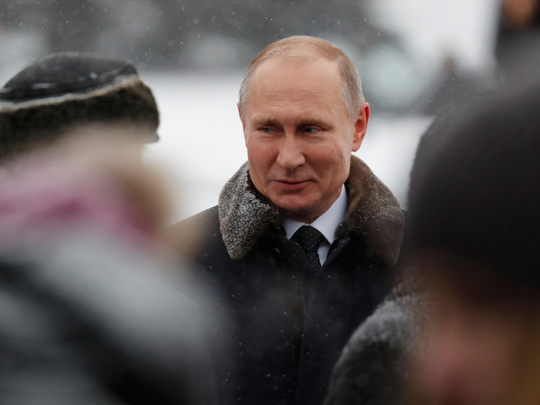
No one has yet nailed down who really runs them or funds them, although Czech journalists have spent years trying. That hasn’t stopped the 30-odd “pro-Russian” websites in the Czech Republic from churning out a daily diet of conspiracy theory, slander, invented scandals about non-existent Muslim migrants and attacks on the United States, Nato and the European Union — as well as praise for Russia and for the pro-Russian Czech president, Milos Zeman.
It doesn’t sound like much, but in a small country with a tiny advertising market and weak “mainstream” media, these websites have come to be a real force. A solid quarter of the Czech public not only reads and believes the pro- Russian “alternative” sites but also has come to rely on them as its main source of news. Over time, the constant drip-drip of false stories and scurrilous claims has helped shape public debate in this central European country, once a pillar of transatlantic solidarity — so much so that support for Nato has dropped below 50 per cent, and support for the European Union is even lower.
Their invented stories — of the main opposition candidate’s (nonexistent) links to the secret police; of secret US funding for anti-Zeman protesters — also form the backdrop to the Czech presidential election, the first round of which was on Friday [It has now gone into a run-off vote]. Although nothing can be excluded — the last Czech presidential election was partly swung by a false, last-minute claim that Zeman’s opponent had Nazi links — no sensations are expected, and analysts may well conclude that there was “no Russian intervention” in the election, just as they concluded that there was “no Russian intervention” in the German election in September.
But that’s partly because Czech politics, like German politics, are already shaped by Russian intervention in myriad ways. From the conspiratorial press with its secret sources of funding to the more open links between the Czech president’s office and Lukoil, a Russian company, the entire landscape has been deformed. Sensational leaks or hacked material aren’t necessary when a part of the public is already hooked on Russian-inspired disinformation and a part of the state is already linked to Russia through financial ties.
This form of permanent, low-level distortion is the real topic of the dense, 200-page report titled ‘Putin’s Assymetric Assault on Democracy in Russia and Europe’, issued this week by the Democratic staff of the Senate Foreign Relations Committee. As it happens, there isn’t a section on the Czech Republic, but there are chapters on France, Germany and Britain, as well as Hungary, Bulgaria, the Baltic states and more. Most of the material is not new — the footnotes lead to published material or open hearings — but the cumulative effect is striking.
Read in its entirety, the committee report tells a bleak story of constant, ongoing attempts to disrupt politics and economics in all of America’s most important European allies, over many years. The cost to the Russian state is low: The same kinds of conspiratorial material are recycled across the continent, varied slightly to match local tastes, and the costs of purchasing influence and political party funding seem to be borne by private companies.
Some countries are fighting back. The Baltic states and the Nordic countries have instituted national programmes to monitor disinformation; the French media was prepared for Russian intervention in the last election and sought to resist it. But so far, the US has not stepped up to the challenge of this new world in any way. So distorted are our own politics by a president who refuses to acknowledge his links to Russia that Republican members of the Senate committee refused to sign on to this pedantic, well-documented and thoroughly unsensational report, or to endorse its sensible and pragmatic recommendations, which anyone interested should read.
Very slowly, a part of Europe’s political leadership is beginning to focus on the threat, to allied unity as well as to democracy itself, posed by Russian influence campaigns. But the American leadership that galvanised resistance to fascism and to Communism in the past is missing. Not only is there no concentrated, joined-up US policy — the report notes that Rex Tillerson’s State Department has so far stubbornly refused to take this problem seriously, despite congressional demands — there is not even a symbolic push for allied solidarity and democratic values.
A White House that shouts “fake news” at its own news corps hardly helps the beleaguered independent media in Prague; a president who rants about nuclear buttons on Twitter hardly makes the case for American leadership. It’s not just that Atlanticist, pro-American Czechs can’t count on US support at this time of crisis; this White House makes it harder for them to win their arguments at all.
— Washington Post
Anne Applebaum is a columnist and Pulitzer Prize-winning author who has written extensively about Europe. She is a visiting professor of practice at the London School of Economics.










